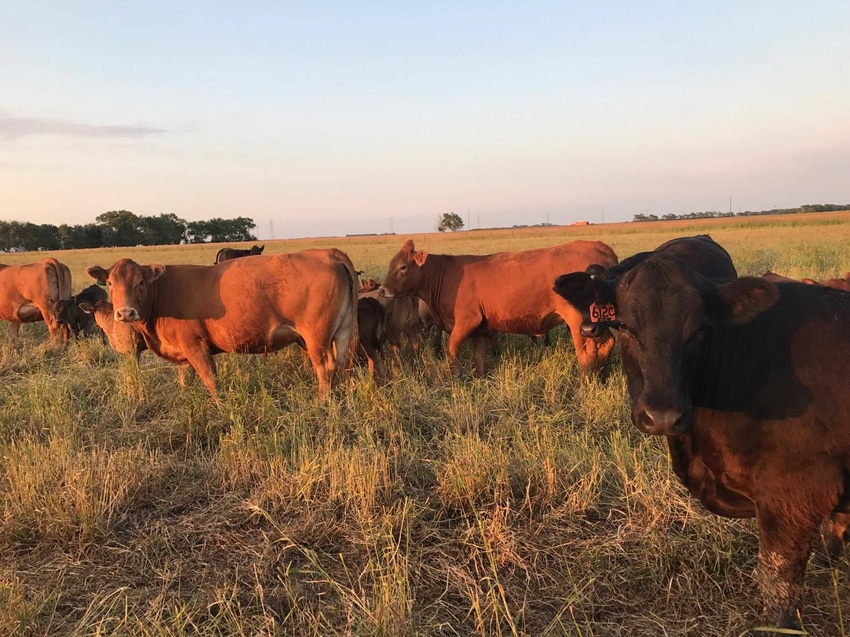SHARE: Livestock has smaller environmental impact than often reported
Move over, Meatless Mondays. There are more effective ways to save the planet than skipping your favorite cheeseburger.
September 13, 2017

I was sitting in one of my freshman journalism classes at South Dakota State University (more than a decade ago) when I was first challenged with the consumer perception that livestock production was destroying the planet.
Oddly enough, it was my professor, who was supposed to be teaching us about constructing press releases, who was sharing this information. I raised my hand to speak up on the topic, but was quickly shut down. This professor, a guy who didn’t own cattle or land like I did, obviously knew more about this topic. He closed his tirade encouraging the class to go Meatless on Mondays. I was livid and knew I needed to prepare for a second conversation in class when the opportunity would arise. I went home and researched what I already knew to be true — that cattle ranchers are stewards of the land. Today’s beef producers use fewer resources to produce more beef, when compared to production methods of the 1970s. We are efficient, and that’s what makes us sustainable.
Additionally, the nutritional bang for your caloric buck goes much farther with a 3-oz. serving of beef when compared to foods like broccoli or peanut butter preferred by the meatless crowd.
The professor’s information on this topic of beef production and the environment more than likely came from the 2006 United Nations report, “Livestock Long Shadow,” which made the inaccurate claim that 18% of global greenhouse gases are caused by animal agriculture.
READ: Livestock’s shrinking U.S. shadow
As an industry, we’ve been plagued by this false information ever since, despite there being countless research and factual information released that contradicts this information.
Now, eleven years later, there’s even more evidence that this link to livestock production and planetary destruction is erroneous.
According to Elsevier, “A new study in Global Food Security found that livestock place less burden on the human food supply than previously reported. Even stronger, certain production systems contribute directly to global food security because they produce more highly valuable nutrients for humans, such as proteins, than they consume.”
Yes, you read that right. Researchers are backpedaling on previous claims, and now the industry must do damage control.
The article goes on to say, “While there have been vast improvements in food systems, people still go hungry. In 2015 alone, approximately 800 million people around the world were undernourished. Animal food sources make a vital contribution to global nutrition and are an excellent source of macro- and micronutrients. Meat makes up 18% of global calories and 25% of global protein consumption and provides essential micro-nutrients, such as vitamin B12, iron, and calcium. Livestock use large areas of pastures where nothing else could be produced. Animals also add to agricultural production through manure production and drought power. Further, tending livestock provides a secure source of income for people in many in rural areas.”
Wow, our industry is finally being credited for providing a nutritious product and utilizing rough terrain that would otherwise sit unused in order to produce great-tasting, nutrient-packed beef!
READ: Sustainable beef? U.S. has most environmentally friendly livestock in the world
Ultimately, this new research highlighted how livestock, not plants, will help address the needs of the hungry and malnourished throughout the world, while also using by-products that would otherwise become environmental waste.
This is a fantastic article that I encourage you all to read and share on social media. Good news like this doesn’t come often enough, and this is one of those that could really turn consumer perception in the right direction.
You can read the article in its entirety here. Check it out and let me know what you think.
The opinions of Amanda Radke are not necessarily those of beefmagazine.com or Farm Progress.
About the Author(s)
You May Also Like




.png?width=300&auto=webp&quality=80&disable=upscale)
